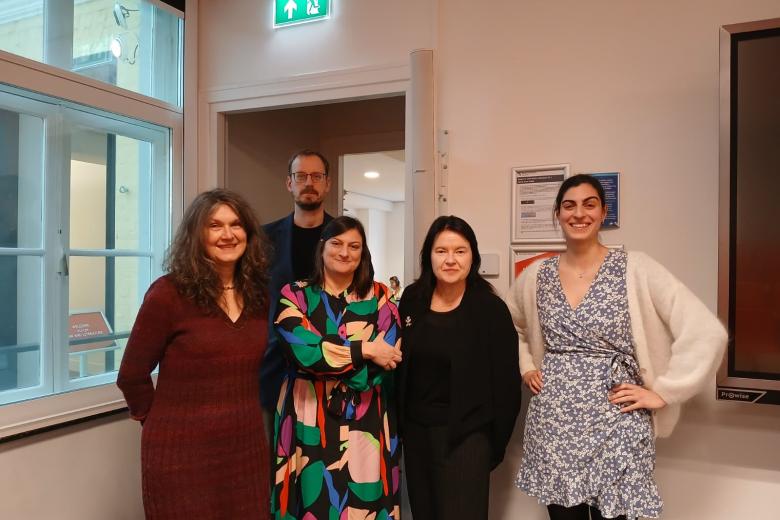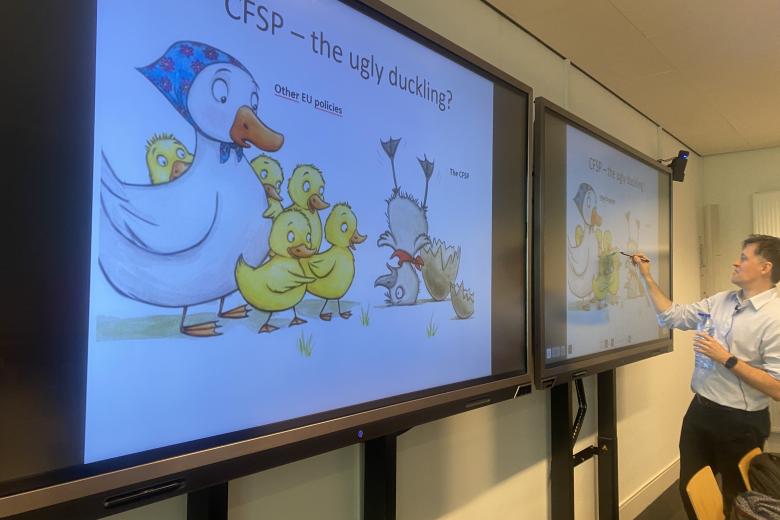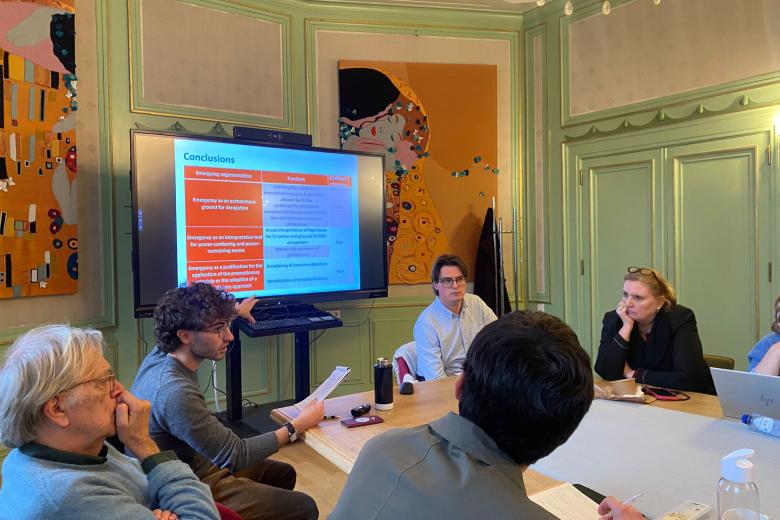RegTech4AI: bridging theory and practice in AI regulation
In March, Dr. Konrad Kollnig was granted an AiNed Fellowship for his research project RegTech4AI. The project combines expertise in law and technology to develop regulatory technologies for citizens, enforcement agencies, and businesses in the domain of artificial intelligence (AI). This shall support them in the implementation of AI-relevant laws such as the GDPR (General Data Protection Regulation) and the upcoming EU AI Act and, more generally, contribute to the global challenge of regulating AI technologies.
Dr. Kollnig has expertise in both computer science and law, which is a relatively rare combination. During his time as a PhD candidate at Oxford University, he developed new technical and legal methods to study privacy issues in mobile apps, including how apps ask for legally required consent to track users’ activities across different apps. Most apps were not following the rules of the GDPR, the EU’s data protection law, pointing to a vast discrepancy between legal rules and digital reality. For his thesis, Dr. Kollnig was awarded the Council of Europe’s prestigious Stefano Rodotà prize. Now, he’s a lecturer and researcher at the Law Faculty of Maastricht University and member of the Law and Tech Lab. Embedded into the lab, he will soon lead a new project called ‘RegTech4AI: Pioneering Regulatory Technologies for AI and Making AI Regulation Work in Practice’.
“The RegTech4AI research project aims to navigate the complex terrain of AI regulation, bridging theoretical insights and practical implementation,” Dr. Kollnig explains. “Law and technology can be seen as two sides of the same coin; law has long set rules for our lives, while code now is the primary means to rule the digital economy. Thinking about laws for the digital space and combining the two disciplines seems therefore very meaningful and important in the age of AI to make sure that citizens are protected and businesses can innovate. With the broad range of skills in our team, we seek to contribute to the development and implementation of the AI Act and the GDPR and the global debate around AI regulation.”
Challenges and opportunities
Navigating the ever-changing landscape of AI regulation presents both challenges and opportunities. Dr. Kollnig acknowledges the complexity of the task ahead: “Particularly in translating legal principles into actionable practices. Take the GDPR, which received a lot of press coverage over the past years. The translation of the law into code can be difficult for companies, particularly SMEs and start-ups, since the language of law is so different from the language for computers,” he says. “Fortunately, there’s a lot of potential for collaboration between legal experts and computer scientists to address these challenges effectively.”
As part of the RegTech4AI project, Dr. Kollnig wants to organize conferences and workshops to educate, support and connect SMEs who work with AI technologies and therefore have to keep up with AI regulation. He also wants to develop a citizen science app, in which a relatively small number of users can learn more about the AI Act and the GDPR. “The idea is to provide about 1,500 people with tooling about their fundamental rights when it comes to AI and study people’s understanding of them. We aim for high-quality results that we can use for the research project.”
The Law Faculty also benefits from this research project. “In the coming months, we need to hire a total of five new researchers who want to work on this project. This will bring lots of knowledge and expertise in the AI domain to our faculty. With the Law and Tech Lab, we have a unique team of experts and researchers that both have technical and legal skills. The RegTech4AI project can expand on this unique position even further.”
About the AiNed Fellowship program
The aim of the NGF AiNed Fellowship program is to attract AI talent to Dutch academic research institutions. The program is part of the National Growth Fund program AiNed, which promotes the development and application of artificial intelligence among Dutch companies and governments.
Click here for more information about AiNed.
Also read
-
Globalisation & Law Network seminar with Áine Ryall
On 24 November 2025, the Globalisation & Law Network, together with the Institute for Globalisation and International Regulation (IGIR) held the seminar with Professor Áine Ryall.
-
Guest Lecture: Lóránt Havas explores current challenges in the EU’s CFSP
Lóránt Havas delivered a guest lecture on the EU’s evolving CFSP, discussing key legal developments, institutional challenges, and new defence instruments.
-
Guido Bellenghi presents his latest article on emergency and the EU Court of Justice
Guido Bellenghi showcased his forthcoming study on how emergency arguments feature in the CJEU’s reasoning during his presentation at MCEL’s November Forum.